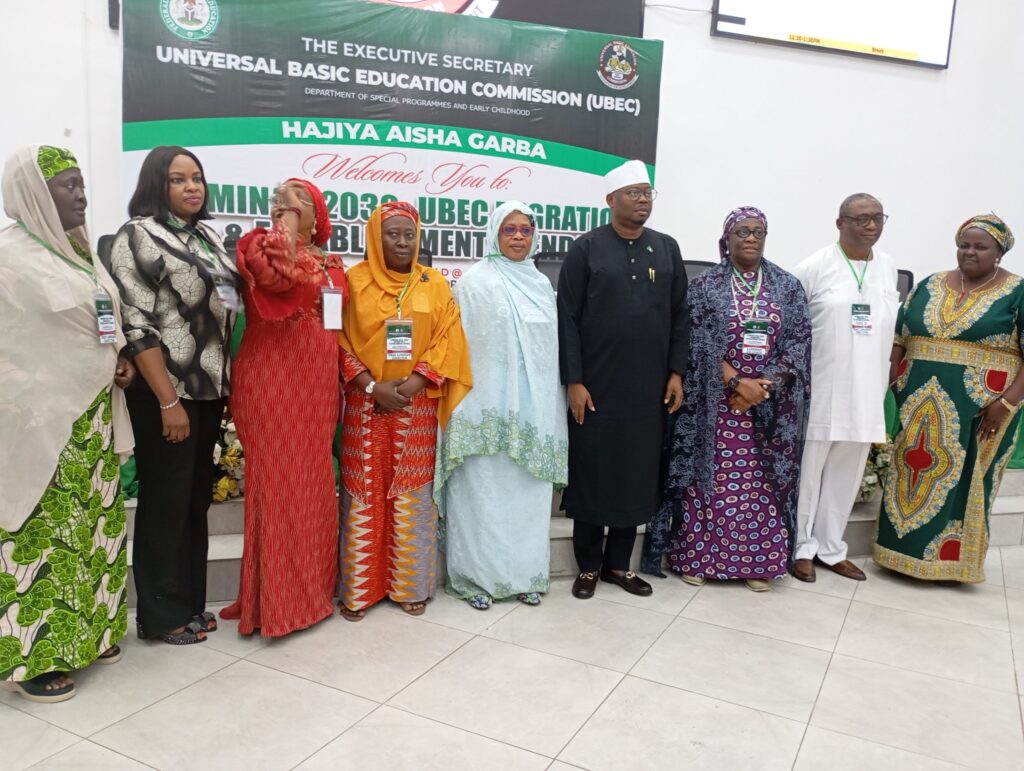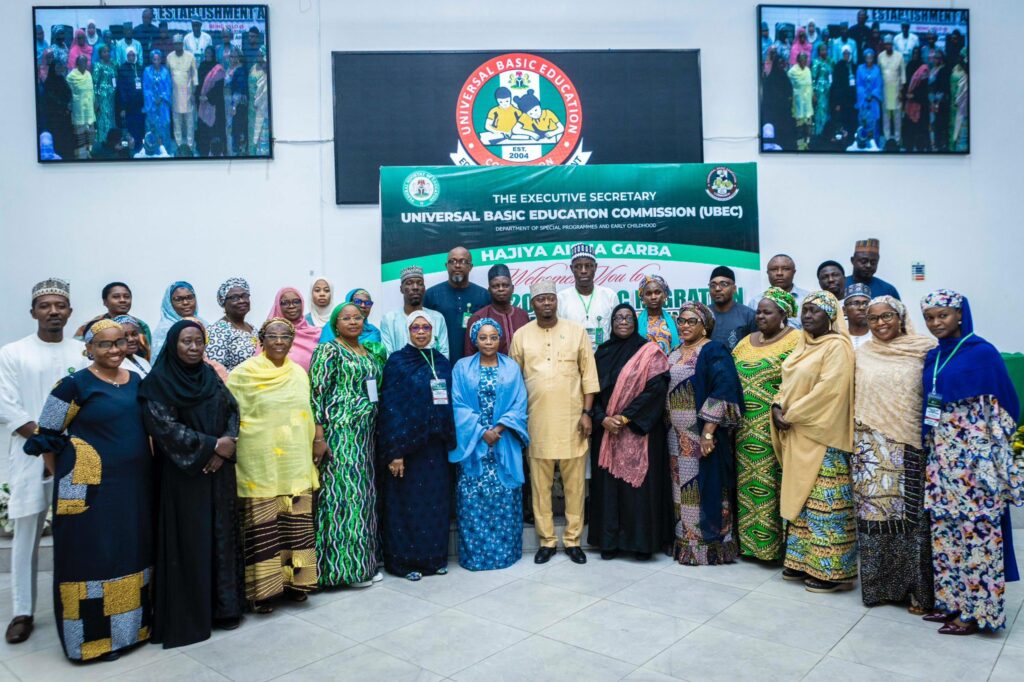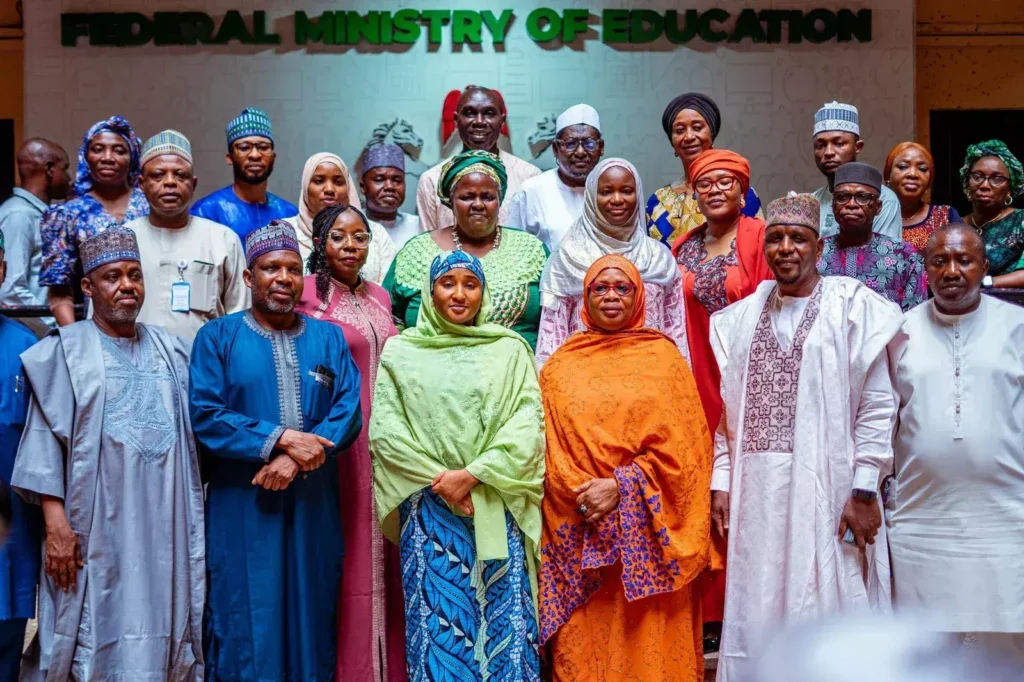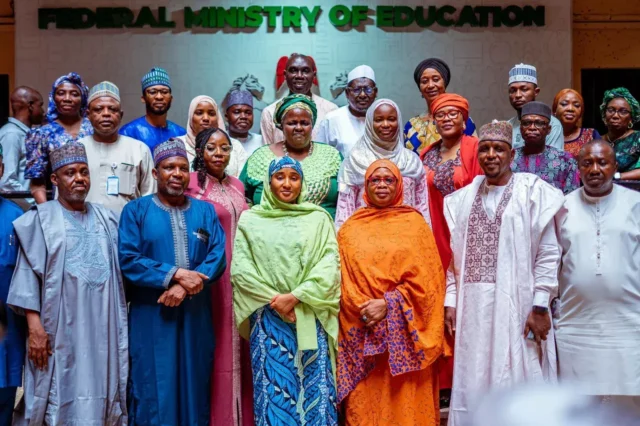In a major shift for the education sector, the Universal Basic Education Commission (UBEC) has officially taken over the LUMINAH 2030 Initiative, a programme designed to educate and empower one million underserved Nigerian girls by 2030. The handover, announced during the “LUMINAH 2030–UBEC Migration and Establishment Agenda” in Abuja, signals a determined push to transform a visionary project into a long-lasting national effort.
For Dr. Aisha Garba, UBEC’s Executive Secretary, the move is more than a bureaucratic change; it is a safeguard. “We cannot allow this initiative to wither when international frameworks wind down. By embedding LUMINAH into UBEC’s structures, we are securing its future,” she said.
Table of Contents

A National Vision Anchored on Education and Empowerment
Launched in March 2025 with the backing of the World Bank’s AGILE project, LUMINAH 2030 carries both symbolic and practical weight. Its name is an acronym for Learning, Uniting, Modernising, Innovating, Nurturing, Accelerating, Harmonising, reflecting its seven-pillar structure. At its core is a bold goal: to give one million marginalised girls access to quality education, safe learning spaces, vocational skills, financial literacy, and community support systems by the year 2030.
In a country where education gaps are still glaring, especially for girls in rural and underserved communities, the initiative arrives as a timely intervention. Beyond classrooms, LUMINAH 2030 also focuses on empowering caregivers, strengthening community participation, and providing psychosocial support for girls who have faced hardship or displacement.
The emphasis is not only on formal learning but on holistic empowerment. As Dr. Garba explained, “A girl who learns a skill, understands financial literacy, and grows up in a safe environment is a girl positioned to change her community.”
UBEC’s Role: Institutionalising and Scaling Impact
One of the strongest criticisms of past educational initiatives in Nigeria is their lack of continuity once donor funding ends. UBEC’s adoption directly addresses this weakness. By absorbing LUMINAH into its existing framework, the Commission aims to guarantee sustainability, accountability, and scalability.
This move aligns with UBEC’s 2021–2030 roadmap, which already prioritises inclusivity and gender equity. According to Garba, institutionalisation ensures that LUMINAH will not remain a temporary pilot but become “an integral part of Nigeria’s education transformation strategy.”
UBEC has pledged to work closely with state governments, civil society, private sector actors, and community leaders to expand the initiative’s reach. Monitoring and evaluation mechanisms will track measurable results—from the number of teachers trained, to girls enrolled, to caregivers economically empowered.
Already, 12 pilot states—Yobe, Taraba, Kano, Jigawa, Benue, FCT, Ebonyi, Anambra, Bayelsa, and Akwa Ibom among them—have started implementing programmes under the LUMINAH umbrella. UBEC’s leadership is expected to expand this footprint nationwide.
Stakeholders are optimistic. The Neem Foundation, a partner in the initiative, described LUMINAH as unique because it blends education, economic empowerment, and psychosocial healing. “True learning happens when a girl feels safe, skilled, and supported,” the Foundation noted.

From Policy to Promise: Voices from the Ground
The shift has also been welcomed by practitioners and advocates who see UBEC’s takeover as a chance to turn lofty goals into visible change.
Amina Buba, the National Coordinator of LUMINAH, called the migration “a strategic step towards sustainability and deeper impact.” She emphasised that under UBEC’s specialised management framework, the programme can move faster in mobilising communities and scaling innovative solutions.
For teachers like Grace Ogbu in Benue State, the programme has already started shifting realities. “Some of the girls in my class now stay beyond primary six because they are encouraged by the new learning support. Parents too are beginning to see education not as a luxury but as a necessity,” she said.
Meanwhile, community caregivers such as Fatima Musa in Yobe State highlighted how vocational training attached to the initiative is creating ripple effects. “I learnt tailoring through LUMINAH. Now I can support my daughters’ schooling. They know education is the reason I can earn today,” she shared.
Experts argue that such testimonies show why institutionalisation matters. Without UBEC’s long-term commitment, many of these gains would be at risk of fading once donor support ends.
A Pathway to Inclusive Development
Education has long been seen as the foundation of national development, but for too many Nigerian girls, it remains out of reach. Poverty, cultural barriers, insecurity, and inadequate infrastructure continue to hold back millions. LUMINAH 2030—now under UBEC—seeks to tackle these challenges head-on by combining policy reform, community engagement, and practical empowerment.
The programme also aligns with Nigeria’s commitments under the Sustainable Development Goals (SDG 4 on quality education and SDG 5 on gender equality). By setting a clear target of one million empowered girls by 2030, UBEC has given the nation a measurable benchmark.
The hope is that the initiative will also catalyse wider reforms: more inclusive curricula, stronger teacher training, and a cultural shift that recognises girls’ education as an investment, not a burden.
Dr. Garba put it succinctly: “Every girl reached by LUMINAH is not just a statistic. She is a voice, a leader, and a nation-builder in the making.”

Conclusion
UBEC’s adoption of LUMINAH 2030 marks a watershed moment in Nigeria’s education sector. By securing the programme’s sustainability and embedding it within national structures, the Commission has moved the conversation from promise to practice.
If implemented faithfully, the initiative could change the trajectory of one million girls, their families, and their communities. And in doing so, it could also shift Nigeria closer to a future where no girl is left behind in the classroom or in life.
Join Our Social Media Channels:
WhatsApp: NaijaEyes
Facebook: NaijaEyes
Twitter: NaijaEyes
Instagram: NaijaEyes
TikTok: NaijaEyes
READ THE LATEST EDUCATION NEWS





